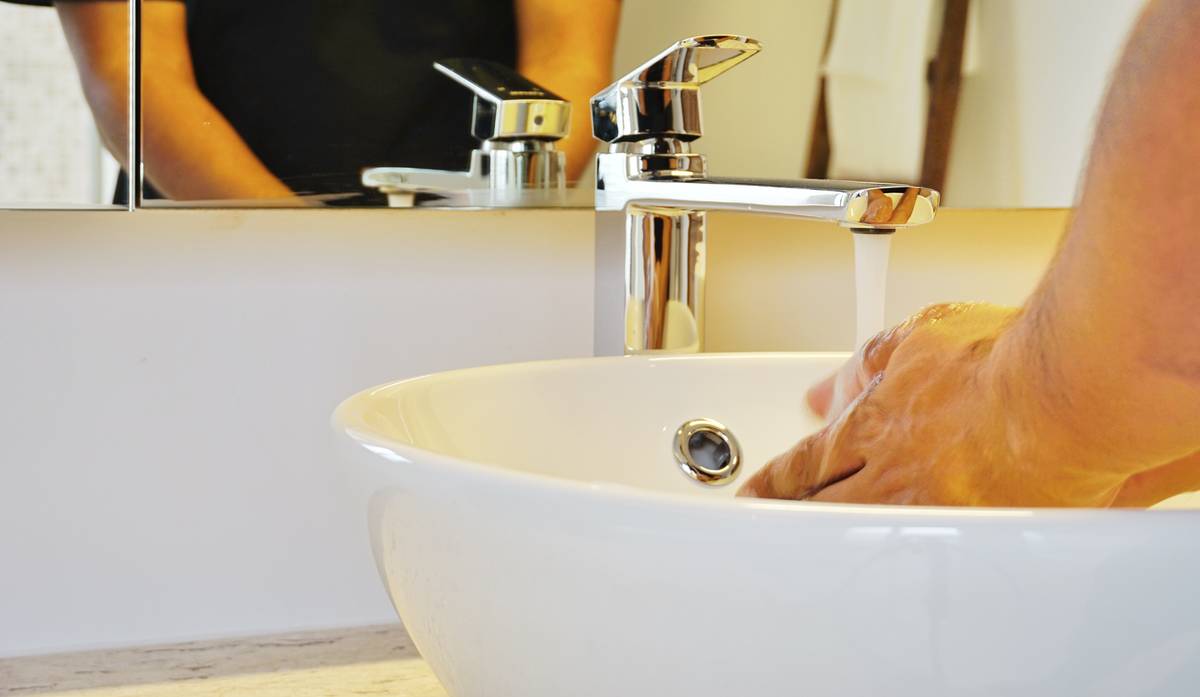Poor hand-washing spreading coronavirus in nursing homes, care facilities
CARSON CITY — Poor hand hygiene is emerging as the No. 1 factor in the spread of COVID-19 in skilled-nursing homes and similar communal care facilities in Nevada, according to initial data state investigators are compiling.
The second- and third-ranked causes are improper or ineffective use of personal protective equipment and failure to properly isolate infected residents and staff, said Richard Whitley, the director of the state Department of Health and Human Services.
“If hand hygiene really is a contributing factor to spread, there’s no excuse for that,” Whitley said Tuesday. “That’s not a piece of equipment; that’s stopping to wash your hands. And like I said, that was the No. 1 infection-control breach that we identified in facilities.”
The department this week began publicly tracking infections and deaths from COVID-19 in nursing homes, assisted living centers and other institutional facilities, including prisons. Investigators are still compiling facilities reports, but Whitley was able to discuss top-level findings.
Following an update Wednesday afternoon, the state reported 254 COVID-19 cases and 19 deaths among 34 facilities in the state, including 18 nursing homes, five behavior inpatient facilities and four assisted living centers. Among those facilities, nursing centers are seeing the greatest impact, with 170 cases — 94 residents and 76 staff — and 14 deaths.
Overall as of Wednesday afternoon, COVID-19 cases in facilities represent about 8 percent of the statewide total of 3,211, and 14.5 percent of the 131 reported deaths. In Washoe County, however, large outbreaks at two facilities total 99 cases and represent 18 percent of the county’s cases.
Lakeside Health &Wellness Suites in Reno, a 189-bed skilled nursing home, had 43 cases Wednesday involving 38 residents and five staff members, and four resident deaths, according to the state’s figures. Willow Springs Center, a 116-bed residential youth treatment center also in Reno, had 56 cases involving 36 residents and 20 staff, with one staff member dying.
“They account for a significant portion of the cases that we’ve had in in Washoe County to date,” county health officer Kevin Dick said in a briefing Wednesday.
At the Willow Springs facility, Whitley said, investigators had found “environmental health issues with the facility properly cleaning,” which are “deficiencies in the management of the facility.”
“Those are concerning, but they’re also things that can be improved upon,” Whitley said. “But I think that the higher risk for the population (from the virus spread) is probably the bigger concern.”
The Willow Springs website notes that it has “implemented additional training for all employees on handwashing and hand sanitization” and increased the “frequency of the required cleaning and sanitization of our facility, including intake rooms, surfaces and common areas.”
At a Tuesday briefing, Gov. Steve Sisolak said the outbreaks in care facilities were “extremely unfortunate.”
“My mom was in a rehab facility for a couple months a few years ago when she had a broken back situation,” he said. “The folks that are in there are more vulnerable clearly because they have underlying conditions, and we did make sure that we can get enough (personal protective equipment) in to them and provide professional services.”
As the state National Guard is deployed to aid in the state’s COVID-19 response effort, the governor said members will be assigned to help in communal care facilities alongside volunteers who have joined a COVID-19 medical corps the governor created on April 1. As of Tuesday, more than 800 people had volunteered. Whitley said volunteers are now being matched to facilities that have requested support.
“We’re going to send more medical professionals — retired folks — in there to provide some assistance, and it’s a focus for all of us because those are our most vulnerable citizens,” Sisolak said.
Whitley said the state developed an outbreak response protocol a decade ago in answer to a hepatitis-C outbreak in surgery centers.
“Going into this COVID-19 event, we already had some working relationships in place with disease investigators and regulators,” he said. The state’s goal is get the facilities “to proactively improve, but I do think that there’ll be deficiencies.”
“We do have the ability to impose a penalty,” Whitley said, adding: “In this crisis, the goal is to have them be compliant and protect the public. It isn’t to impose a sanction.”
Contact Capital Bureau reporter Bill Dentzer at bdentzer@reviewjournal.com. Follow @DentzerNews on Twitter.


















